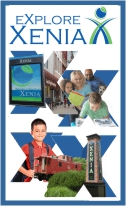Tax Tip of the Week | Estate Planning Options
Deciding who will inherit which of your possessions can be a tricky business. This article goes over a handful of methods of dividing up one’s possessions that were sent in by readers of the WSJ. It may offer a starting place for those getting into the process, and for those who are experienced with estate planning, it might also spark some new ideas.
- Jordan Bradstreet
I read your column about heirs dividing up personal possessions after a family member dies. Here is a better approach for your consideration.
That comment refers to a May column, in which we answered a reader’s question about estate planning and how best to allocate family items.
I suggested that parents, while still alive and in good health, should talk with adult children about the things—a wristwatch, a painting, a book, a musical instrument, a baseball glove—the children might want to inherit and why. I also recommended drafting and signing a “personal property memorandum,” a list of items and the people selected to inherit them, and attaching this paperwork to one’s will.
Those thoughts prompted a number of emails from readers that can best be summarized as: “Nice try, but there are better ways to do this.” First, my thanks to all those who took the time to write. And second, I agree: Some of the suggestions we received are (pick a word) smart, compelling, straightforward ways to solve what can be a knotty problem.
What follows are several of these ideas:
One reader proposed, simply, that heirs draw lots to select among belongings. “Suppose the second parent dies, leaving three children,” the reader began. “Put three numbers in a hat—1, 2 and 3—and let each child pick one.
Share Your Thoughts
Are there other strategies for dividing assets that you think we have missed? Join the conversation below.
“Then the person holding No. 1 selects an item, then No. 2 and then No. 3. Then, in the next round, No. 3 goes first, followed by No. 2 and No. 1. Repeat until everything is gone.”
(A footnote: In referring to my May column, this reader said: “I think you may make things too complicated.”)
Rather than waiting for a parent to make the first move, as I recommended in my original column, a reader in Ohio stepped up and helped her mother decide who would inherit what. This, after the reader discovered that the mother had promised to give her grandfather clock to the reader’s younger brother—after already promising the same clock to our reader, as well as the reader’s older brother.
Planning for the Endgame
Surveyed adults age 55 and older, asked what it means to have one’s ‘affairs in order,’ here is what they said:
A will/trust that directs how estate should be disbursed 67%
Documents that express wishes for end-of-life care 63%
Sufficient funds to cover funeral/end-of-life expenses 57%
Talks with loved one about end-of-life wishes/legacy 49%
Source: Merrill Lynch Wealth Management/Age Wave ‘Leaving a Legacy: A Lasting Gift to Loved Ones’ 2019
“I suggested: ‘Mom, let’s write it down,’ ” the reader told us. “It was actually a nice experience as we went through her prized possessions and assigned them to a family member or friend. She signed and dated the paper, and I put it away for what I hoped would be a long time.”
(A second footnote: As it turned, out, after the mother died, “No one wanted the grandfather clock,” the reader said.)
A reader in North Carolina wrote to us about a similar approach. “When visiting my aging mother, I would pull out my laptop, point to a display shelf—or a wall of photos or a silver chest—and say: ‘Mom, please tell me the stories’ ” behind each object. “As she held an item in her hands, the tales poured out. I could capture the essentials as I typed, and edited later.”
These talks, the reader added, didn’t establish how each and every belonging would pass to heirs. But “when the time came for my sister and me to deal with it all, we could know the history and story of an item, pass that information along with the piece, and determine where it should go.
“The process also made visits with my mother more meaningful to both of us,” the reader added.
Several readers suggested that heirs should bid, in some fashion, for personal possessions and/or that items should be “auctioned” off.
“A friend’s family doled out Monopoly money to all the cousins and held an auction for the sentimental items,” one reader said. “It gave everyone a chance to put their money on the items they valued—and made good memories doing it.”
A reader in Texas credited his stepmother with figuring out how to divvy up his deceased parents’ furniture and possessions among him and his three brothers.
“First, she typed up a list of all the items to divide. Next, she awarded each of us 100 points to bid with. Then, the four of us talked to each other about who wanted what. I had just bought a house, so the big furniture items were more valuable to me. My brothers were in apartments, and they already had furniture. So they bid for more of the artwork and furnishings—and even silver. It made perfect sense for where each of us was in life.
Ask a Question
Have a question about planning for and living in retirement? Email This email address is being protected from spambots. You need JavaScript enabled to view it..
“Then we all turned in our bids—and everyone got to see who got what. It was as fair as it gets. And our stepmother wasn’t stuck in the middle, having to decide who got what among her stepchildren.”
Finally, one reader reminded us that, at times, siblings alone (read: without input from in-laws or other family members) are best able to parcel out possessions and memories. After this reader’s grandmother died, the reader and her sister found themselves with about 40 of the grandmother’s personal belongings. The two siblings placed the items on a table in agreed-upon pairs of similar value. Then, according to our reader, “We went back and forth, choosing one item from each pair.”
One pairing, in particular, included an antique inlaid wood box—and a battered old tin. The sister’s spouse was skeptical. How, this in-law asked, “was the wood box in any way ‘equal’ in value to the old tin?”
Our reader replied: “My grandmother was a schoolteacher, and that tin was her chalk box. When my turn came, I chose the tin. I have it still.”
Credit given to: Glenn Ruffenach. Published July 2020 in the Wall Street Journal.
Thank you for all of your questions, comments and suggestions for future topics. As always, they are much appreciated. We also welcome and appreciate anyone who wishes to write a Tax Tip of the Week for our consideration. We may be reached in our Dayton office at 937-436-3133 or in our Xenia office at 937-372-3504. Or, visit our website.
This Week’s Author, Jordan Bradstreet
-until next week.













